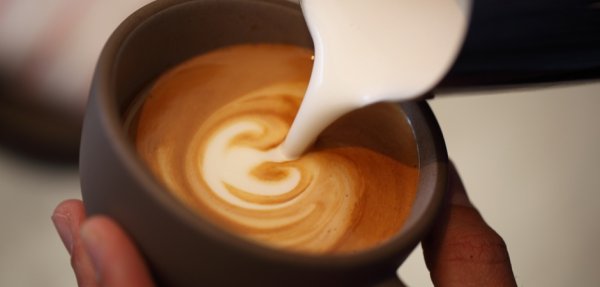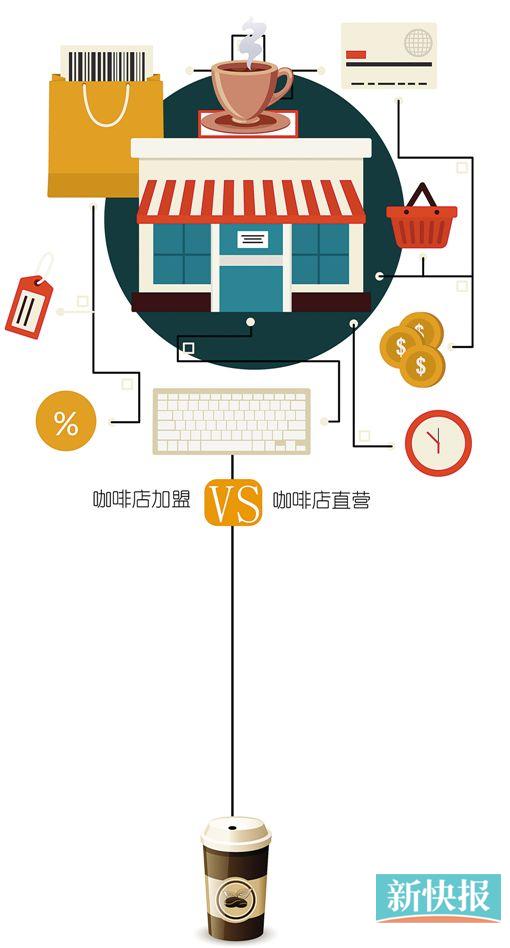Show the better side of coffee

It was 12:30 noon when I interviewed Wei Lingpeng, which happened to be the lunch break of the SCAE (European boutique coffee association) barista certification course. During the tense interview, we talked about a leisurely topic: how to make a cup of coffee with a long taste?
For a long time before he began to think about this problem, Wei Lingpeng's impression of coffee only stayed on bags of instant coffee. Since then, with the entry of a coffee chain into China, his understanding of coffee has entered a new level and gradually developed a strong interest. This interest led him to learn every detail about coffee until he left to start a business and is now the founder of physical stores and training institutions in Beijing coffee salons.
"Coffee is a kind of culture, and the knowledge of coffee is a process of continuous learning." Wei Lingpeng told reporters that his first contact with coffee was to play in his home with mocha pots and siphon pots. The more interesting I find it, the more I find the complexity of coffee knowledge. "Coffee has a complete industrial chain, from the early planting, processing and trade of coffee beans to the subsequent roasting, production and management, every link is full of knowledge."
Around 2005, Wei Lingpeng resigned from a state-owned enterprise and began to specialize in coffee. He not only set up his own boutique coffee store, but also trained in coffee knowledge and technology.
In Wei Lingpeng's view, such entrepreneurial actions follow a trend of boutique coffee culture that is popular all over the world. "starting from the selection of coffee beans, choosing coffee beans of excellent quality has special requirements for the way and technology of coffee from roasting to cooking, and more coffee knowledge is needed to support it."
Wei Lingpeng told reporters that the concept of boutique coffee emerged in the 1970s, but it was really popular all over the world in the last 10 years. In this trend, Wei Lingpeng also sensed that Chinese people's love for coffee has been growing in recent years. "more and more people in China now like coffee and want to open leisure coffee shops and professional coffee shops."
Wei Lingpeng believes that although in terms of quantity, there are not as many people opening boutique coffee shops as chain coffee shops in the general sense, boutique coffee shops are a global trend. The improvement of people's economic strength and consumption level has also driven the continuous development of this industry. "the sales of coffee roasters can reflect this. Some foreign brands that only entered China five or six years ago have shown a geometric multiple increase in domestic sales in recent years, because more and more people run boutique coffee shops."
Not only that, Wei Lingpeng's own experience conveys a similar feeling: in 2012, Wei Lingpeng became the first person in China to be qualified as a coffee connoisseur of the European Fine Coffee Association. At that time, there was no examination center in China, so if you want to take the exam, you have to go to Chongqing. But during these three years, test centers have also been set up in China, so that people who want to take the exam no longer have to travel long distances to go abroad. In addition, there were less than 2000 internationally certified coffee tasters in the world three years ago, and Wei Lingpeng was the first person in China. Now, there are about 200 certified appraisers in China.
The reporter can also feel Wei Lingpeng's unique feelings for coffee in the interview. He repeatedly stressed to reporters that the idea of a boutique coffee shop is to "want to show the better side of coffee." In order to meet this requirement, it is necessary for the owners and employees of boutique coffee shops to have more professional coffee knowledge, and even coffee knowledge covering the entire industry chain, in order to enable guests to taste boutique coffee from different regions around the world. For example, have a clear understanding of coffee planting, processing, roasting, tasting, storage, grinding, extraction and other links. "all the links are ultimately for taste. Guests who are interested in good coffee also hope to know more about coffee. If they can communicate well with the guests, it will naturally help them taste better and eventually let more and more people integrate into the coffee culture. "
In the interview, Wei Lingpeng does not deny that there is a gap between the preferences of many consumers and their expectations. "the average consumer still thinks that coffee is a bitter and astringent drink, and if you introduce a certain kind of coffee with good sweetness, acidity, flower flavor and rich fruit flavor, it may be difficult for him to accept it." In Wei Lingpeng's view, this requires slow promotion, dissemination, sharing, and even training. "with the increase in coffee consumption, the number of consumers who like high-quality coffee will also increase." Let more people understand boutique coffee, identify with boutique coffee, this is the direction of his efforts.
Source: economic Daily
Important Notice :
前街咖啡 FrontStreet Coffee has moved to new addredd:
FrontStreet Coffee Address: 315,Donghua East Road,GuangZhou
Tel:020 38364473
- Prev

How should I play in a coffee shop with personal investment?
With the development of economy and times, the business and leisure value of coffee shops are becoming more and more obvious, and more and more people are demanding more and more coffee consumption. Coffee shop has the greatest potential in all kinds of coffee consumption, and its development momentum is the strongest. Coffee shop consumption will become the dominant coffee consumption in the next 5-10 years. Opening a coffee shop is a lot of investment.
- Next

Elephant shit coffee is becoming more and more popular. A cup costs more than 80 yuan.
After Kopi Luwak, drinking elephant shit coffee has become a new fashion. According to the Daily Mail of June 10, luxury hotels in the Qingsheng Anatara scenic spot in Thailand sell hot shit-like coffee to tourists. This special coffee bean is discharged after 17 hours of fermentation in the digestive tract of the elephant. With a hint of caramel and chocolate mixed aroma, give tourists a unique luxury
Related
- What grade does Jamaica Blue Mountain No. 1 coffee belong to and how to drink it better? What is the highest grade of Blue Mountain coffee for coffee aristocrats?
- What are the flavor characteristics of the world-famous coffee Blue Mountain No. 1 Golden Mantelin? What are the characteristics of deep-roasted bitter coffee?
- Can I make coffee a second time in an Italian hand-brewed mocha pot? Why can't coffee be brewed several times like tea leaves?
- Hand-brewed coffee flows with a knife and a tornado. How to brew it? What is the proportion of grinding water and water temperature divided into?
- What is the difference between Indonesian Sumatra Mantinin coffee and gold Mantinin? How to distinguish between real and fake golden Mantelin coffee?
- What does bypass mean in coffee? Why can hand-brewed coffee and water make it better?
- Unexpected! Ruixing Telunsu lattes use a smoothie machine to foam milk?!
- % Arabia's first store in Henan opens into the village?! Netizen: Thought it was P's
- Does an authentic standard mocha coffee recipe use chocolate sauce or powder? Mocha Latte/Dirty Coffee/Salty Mocha Coffee Recipe Share!
- What is the difference between Vietnam egg coffee and Norway egg coffee? Hand-brewed single product coffee filter paper filter cloth filter flat solution!

